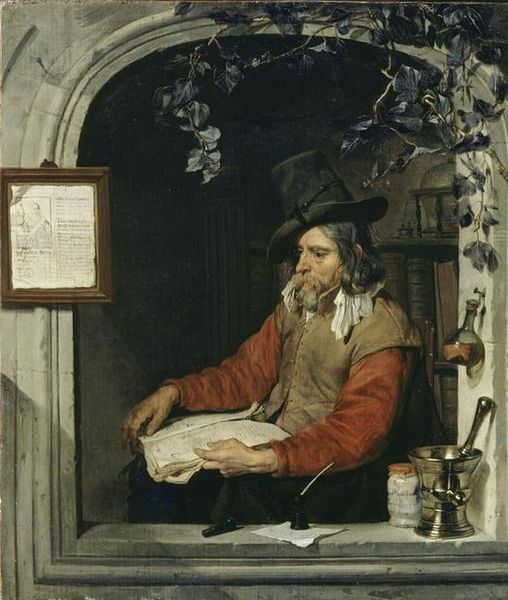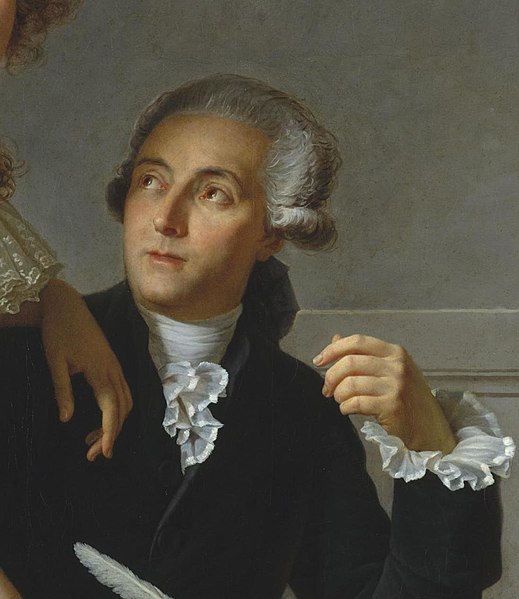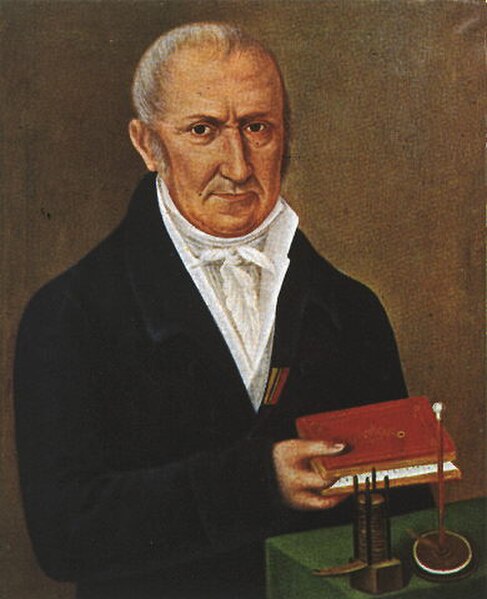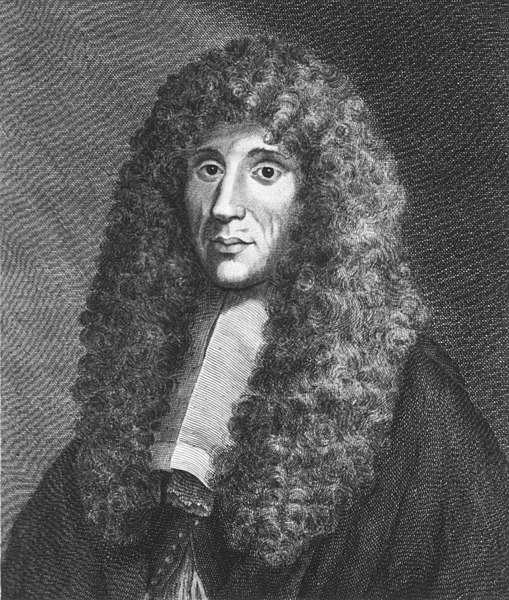A chemist is a graduated scientist trained in the study of chemistry, or an officially enrolled student in the relevant field. Chemists study the composition of matter and its properties. Chemists carefully describe the properties they study in terms of quantities, with detail on the level of molecules and their component atoms. Chemists carefully measure substance proportions, chemical reaction rates, and other chemical properties. In Commonwealth English, pharmacists are often called chemists.
The Apothecary or The Chemist by Gabriël Metsu (c. 1651–67).
German chemist Georgius Agricola (1494–1555) was the first to drop the Arabic definite article al-, exclusively writing chymia and chymista in describing activity that we today would characterize as chemical or alchemical.
Russian chemist Dmitri Mendeleev – author of the first modern periodic table of elements
Antoine Lavoisier (1743–94) is considered the "Father of Modern Chemistry".
A scientist is a person who researches to advance knowledge in an area of the natural sciences.
Pierre Curie and Marie Curie demonstrating an apparatus that detects radioactivity. They received the 1903 Nobel Prize in Physics for their scientific research; Marie also received the 1911 Nobel Prize in Chemistry.
"No one in the history of civilization has shaped our understanding of science and natural philosophy more than the great Greek philosopher and scientist Aristotle (384-322 BC), who exerted a profound and pervasive influence for more than two thousand years" —Gary B. Ferngren
Alessandro Volta, the inventor of the electrical battery and discoverer of methane, is widely regarded as one of the greatest scientists in history.
Francesco Redi, referred to as the "father of modern parasitology", is the founder of experimental biology.








